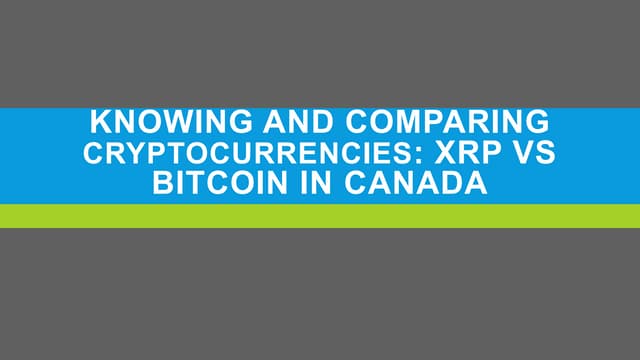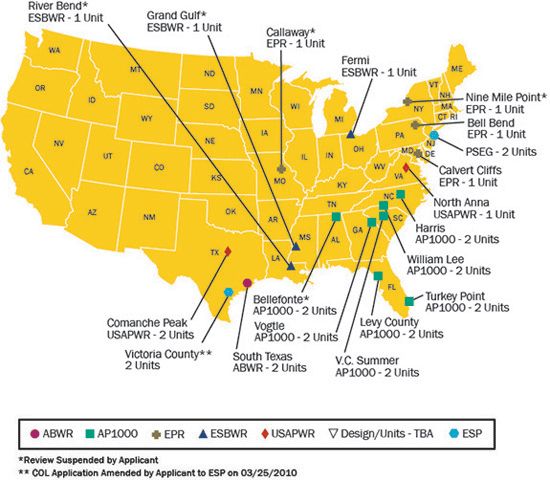What Is XRP And How Does It Differ From Bitcoin?

Table of Contents
What is XRP?
XRP is a cryptocurrency and digital asset designed to facilitate seamless and cost-effective cross-border payments. Unlike Bitcoin, which operates as a standalone decentralized network, XRP is intrinsically linked to Ripple Labs, a company that develops blockchain solutions for financial institutions. Its primary purpose is to act as a bridge currency, enabling faster and cheaper international money transfers. The XRP Ledger, Ripple's proprietary blockchain, utilizes a unique consensus mechanism that prioritizes speed and efficiency.
- XRP's speed and low transaction fees: XRP transactions are significantly faster and cheaper than Bitcoin transactions, often processing in a matter of seconds with minimal fees.
- Instant, low-cost international money transfers: This is XRP's core strength, addressing a major pain point in the global financial system.
- The scalability of the XRP Ledger: The XRP Ledger is designed to handle a large volume of transactions, making it more scalable than many other blockchain networks.
- XRP's use cases beyond payments: Beyond facilitating payments, XRP is being explored for various applications, including providing liquidity solutions and enabling other financial innovations.
What is Bitcoin?
Bitcoin, the original cryptocurrency, is a decentralized digital currency and a pioneer in the blockchain revolution. It operates on a public, decentralized blockchain, meaning no single entity controls the network. Its underlying technology, the Bitcoin blockchain, uses a Proof-of-Work (PoW) consensus mechanism, where miners compete to validate transactions and add new blocks to the chain. This process, while ensuring security, is energy-intensive.
- Bitcoin's scarcity (limited supply of 21 million coins): This built-in scarcity contributes to its perceived value as a store of value.
- Its role as a store of value and a hedge against inflation: Many investors view Bitcoin as a digital gold, a safe haven asset in times of economic uncertainty.
- Bitcoin's decentralized nature and resistance to censorship: No central authority can control or manipulate Bitcoin, making it attractive to those who value financial freedom.
- The relatively slow transaction speeds and higher fees compared to XRP: Bitcoin's transaction processing time can be significantly longer, and fees can be substantially higher than XRP's, particularly during periods of high network activity.
Key Differences Between XRP and Bitcoin
Here's a detailed comparison highlighting the core distinctions between XRP and Bitcoin:
Purpose and Functionality
XRP is primarily designed as a payment facilitator, enabling rapid and low-cost cross-border transactions. Bitcoin, on the other hand, functions more as a store of value and a decentralized digital currency.
Technology and Architecture
XRP operates on the XRP Ledger, a centralized ledger maintained by Ripple, utilizing a unique consensus mechanism. Bitcoin utilizes a decentralized, public blockchain with a Proof-of-Work consensus mechanism.
Transaction Speed and Fees
XRP boasts significantly faster transaction speeds and considerably lower fees compared to Bitcoin.
Decentralization
Bitcoin is considered more decentralized than XRP due to its completely public and permissionless blockchain. XRP's association with Ripple introduces a degree of centralization.
Regulation and Legal Status
Both cryptocurrencies face ongoing regulatory scrutiny. The legal status of each varies across jurisdictions, requiring careful consideration.
- Bullet Points Summarizing Differences:
- Purpose: XRP (payments); Bitcoin (store of value/currency)
- Technology: XRP Ledger (centralized); Bitcoin Blockchain (decentralized)
- Transaction Speed: XRP (fast); Bitcoin (slow)
- Fees: XRP (low); Bitcoin (high)
- Decentralization: XRP (less decentralized); Bitcoin (highly decentralized)
Conclusion: Choosing Between XRP and Bitcoin – A Final Comparison
XRP and Bitcoin represent distinct approaches to digital assets and blockchain technology. XRP prioritizes speed and low cost for cross-border payments, while Bitcoin emphasizes decentralization and acts as a store of value. Understanding these fundamental differences is crucial before investing in either cryptocurrency. Both present unique advantages and disadvantages depending on your investment goals and risk tolerance. Before making any investment decisions, thorough research is essential. Learn more about the differences between XRP and Bitcoin to make informed investment choices. Deepen your understanding of XRP and Bitcoin today!

Featured Posts
-
 The Us Console War Ps 5 Vs Xbox Series X S Sales Performance
May 02, 2025
The Us Console War Ps 5 Vs Xbox Series X S Sales Performance
May 02, 2025 -
 Ethniki Stratigiki P Syxikis Ygeias 2025 2028 Krisimes Apofaseis Kai Stoxoi
May 02, 2025
Ethniki Stratigiki P Syxikis Ygeias 2025 2028 Krisimes Apofaseis Kai Stoxoi
May 02, 2025 -
 Cubs Pirates Game Fan Injured In Outfield Wall Fall
May 02, 2025
Cubs Pirates Game Fan Injured In Outfield Wall Fall
May 02, 2025 -
 Reactor Power Uprate A Guide To The Nrc Approval Process
May 02, 2025
Reactor Power Uprate A Guide To The Nrc Approval Process
May 02, 2025 -
 Minnesota Special House Election Understanding Ap Decision Notes
May 02, 2025
Minnesota Special House Election Understanding Ap Decision Notes
May 02, 2025
Latest Posts
-
 Dijon Psg Le Club De La Capitale S Impose En Arkema Premiere Ligue
May 10, 2025
Dijon Psg Le Club De La Capitale S Impose En Arkema Premiere Ligue
May 10, 2025 -
 Arkema Premiere Ligue Victoire Difficile Du Psg Contre Dijon
May 10, 2025
Arkema Premiere Ligue Victoire Difficile Du Psg Contre Dijon
May 10, 2025 -
 Psg Met Fin A La Serie De Dijon En Arkema Premiere Ligue
May 10, 2025
Psg Met Fin A La Serie De Dijon En Arkema Premiere Ligue
May 10, 2025 -
 Arkema Premiere Ligue Le Psg Terrasse Dijon Apres Une Rencontre Haletante
May 10, 2025
Arkema Premiere Ligue Le Psg Terrasse Dijon Apres Une Rencontre Haletante
May 10, 2025 -
 Trois Hommes Agresses Sauvagement Pres Du Lac Kir A Dijon
May 10, 2025
Trois Hommes Agresses Sauvagement Pres Du Lac Kir A Dijon
May 10, 2025
